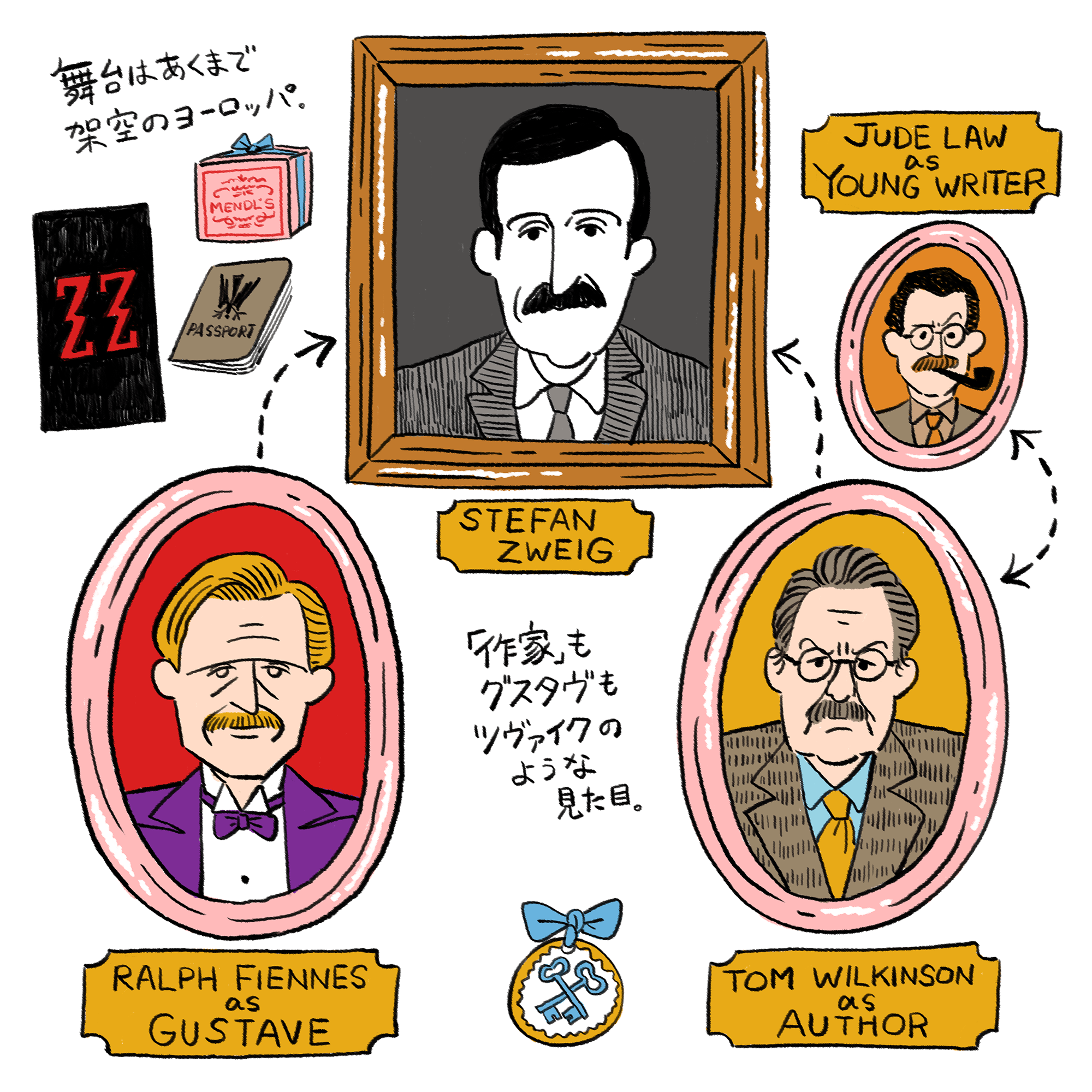Zweig statue in the movie

``The Grand Budapest Hotel,'' which depicts the rise and fall of a long-established hotel in a hot spring area in Eastern Europe, is a picture book-like film that condenses ``yesterday's world.'' Not only does it tell a story of reminiscing about days gone by, but the hotel, which is approaching dusk, seems to represent Vienna and Europe itself, as carefully depicted by Zweig.
I think the scene towards the end where the hotel is taken over by the military and covered in tasteful flags is particularly symbolic. ``Zigzag Army'' is a caricature of the violence that burned Zweig's books and forced him out of his hometown, but by depicting a fictional Europe optimized as a tribute to Zweig, it is based on Wes Anderson's The worldview is protected.
One of the narrators, the ``writer'' played by Tom Wilkinson, is of course a character based on Zweig. The story is structured so that this Zweig-like writer reminisces about a story he was told by the old owner of a hotel he visited when he was young (the old owner's story itself is also a reminiscence, so it is a double recollection). ).
The story centers on the old owner's adventures with a hotel concierge in the 1930s, when he was still a bellhop, and the concierge Gustav, played by Ralph Fiennes, also has a Zweig-like appearance.
People say that it has a reminiscent appearance, but of course I didn't think of that at all when I saw the movie for the first time. I don't even know Zweig's face. But once you get to know Zweig a little more, you begin to see that the old-fashioned concierge, who remains loyal to a hotel in its twilight days, is the personification of ``yesterday's world.'' Since he is deceased, he appears only in flashbacks, so it can be said that he is a representation of days gone by.

![Wes Anderson's World of Yesterday [Mizumaru Kawahara's CINEMONOLOGUE Vol.2]](https://cinemore.jp/images/ec51ac0e9dfb84a64efb93b3321d77fa92b00d9c095bce94ce74ed02b22ad432.png)
